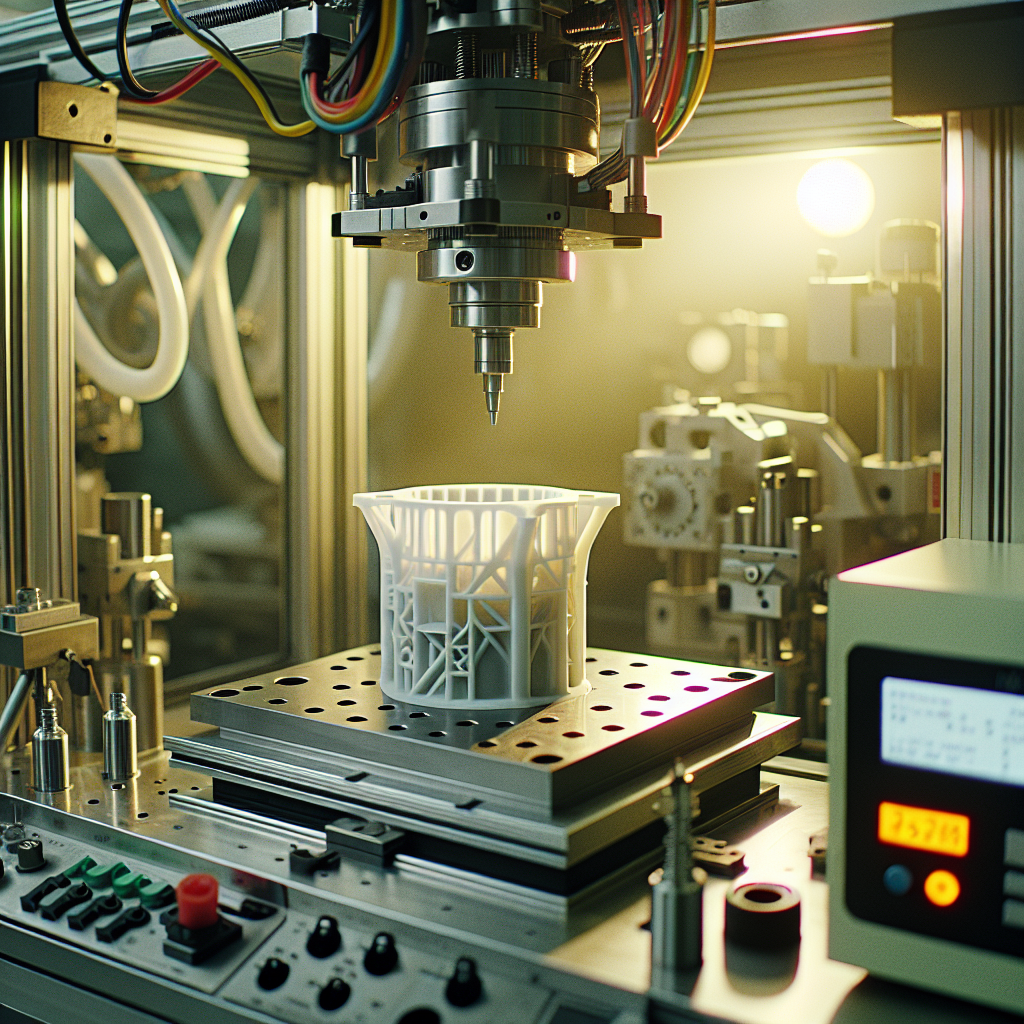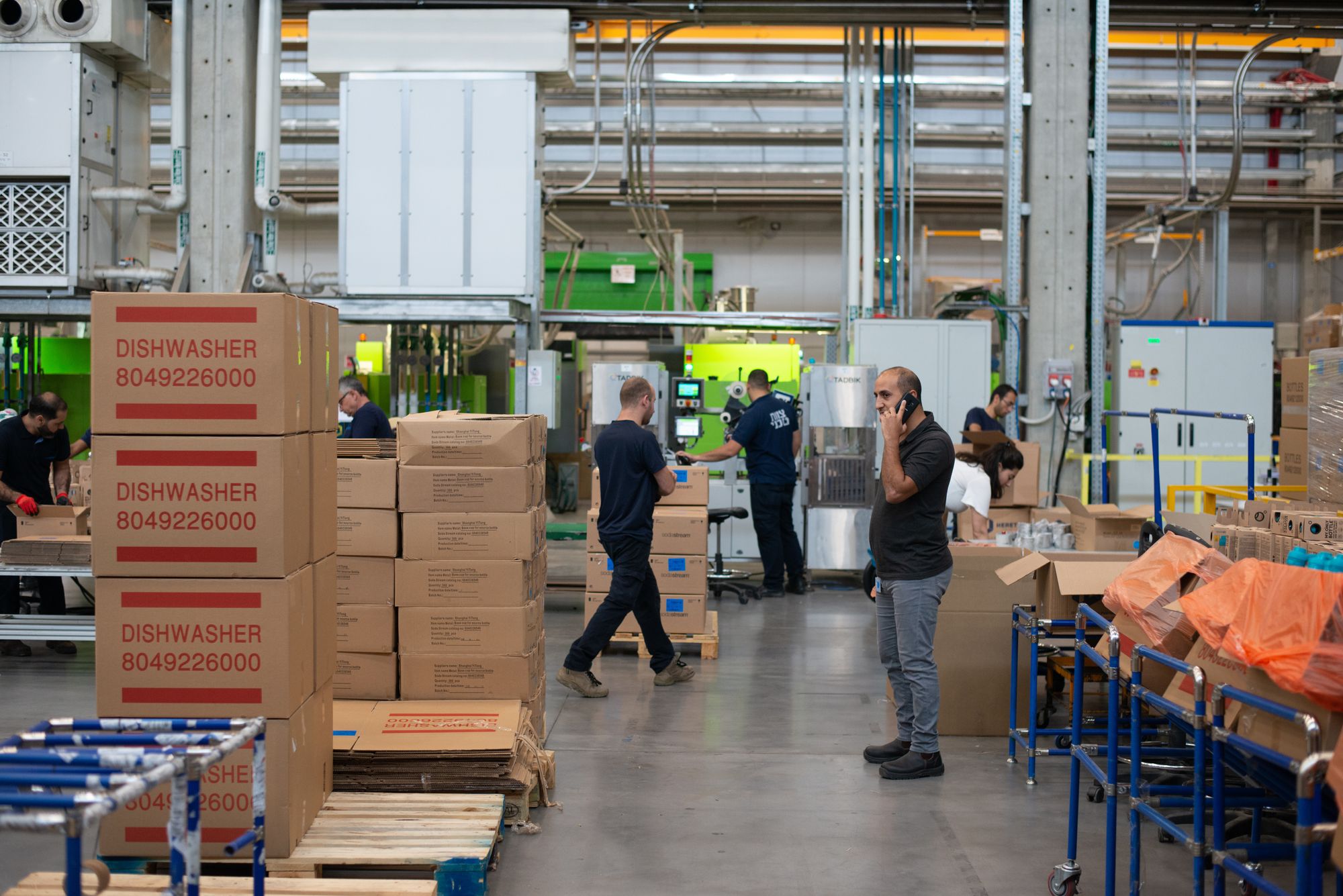The lazy, hazy days of summer are fast approaching. Across the United States, thoughts are turning to beach vacations, backyard barbecues, and basking in the warm sunshine. But for the manufacturing industry, the summer months of June through August have historically been a time when production tends to dip, efficiency slips, and the seasonal slowdown takes hold.
With kids out of school, workers taking time off, and scorching temperatures sapping energy and focus, it's no surprise that factory output often declines during the summer season. However, in today's fast-paced, globally-connected economy, manufacturers can't afford to let the summer slump bring business to a standstill.
As we head into the summer of 2024, US manufacturers face a host of challenges and opportunities. Supply chain disruptions linger from the pandemic era. Skilled labor shortages continue to constrain many factories. Inflation and economic uncertainty are clouding the demand outlook. At the same time, the Biden administration's infrastructure investments and "Made in America" initiatives are aiming to boost US-based production.
In this environment, manufacturers need to find ways to beat the heat and keep their operations running smoothly and profitably through the summer months. With the right strategies, technologies and mindset, the manufacturing industry can make the most of the summer season and position itself for a strong finish to the year. Let's take a closer look at the factors driving the summer slowdown and how manufacturers can adapt and thrive.
The Origins and Drivers of the Summer Slowdown
The concept of a planned summer shutdown originated in the early days of the automotive industry. In 1910, the pioneering carmaker Henry Ford recognized the value of scheduling downtime in the summer months. His factories would close for a period so that workers could take vacations, equipment could be repaired and upgraded, and manufacturing processes could be reviewed and improved.
Ford found that this scheduled summer break actually boosted productivity and morale when workers returned to the line. Many automakers continue this tradition of a summer shutdown today, although the duration varies based on market conditions and production needs.
It's not just the auto industry that sees a dip in summer output. Across many manufacturing sectors, the season brings a perfect storm of factors that can hamper productivity:
- Vacationing workers: With school out, many families schedule vacations during the summer months. Factories can see a notable portion of their workforce taking time off, leaving production lines short-staffed.
- Extreme heat: Studies have shown that worker productivity declines when temperatures climb above 80°F. Factory floor conditions can become sweltering in the summer, sapping workers' energy and focus.
- Equipment strain: Just as human workers can wilt in the heat, production equipment and machinery can be more prone to breakdowns and malfunctions in hot weather.
- Supplier disruptions: Many manufacturers face an upstream and downstream summer slump, as their suppliers and customers also contend with vacationing workers and reduced output.
- Seasonal demand shifts: For manufacturers of seasonal products like outdoor furniture, sporting goods, or back-to-school items, summer marks the end of peak demand. As orders slow, factories may reduce production.
Strategies to Keep Your Factory Humming Through the Summer
For manufacturers determined to take a "no lazy days" approach to summer, there are several strategies to mitigate the seasonal slowdown and maintain productivity:
1. Plan ahead with data: Conduct a thorough analysis of your factory's past summer production trends, looking at data on output levels, worker attendance, machine downtime, and supplier lead times. Use these insights to proactively develop production and staffing plans that account for anticipated summer challenges.
2. Schedule maintenance and upgrades strategically: Take advantage of any dips in production to schedule equipment maintenance, repairs, upgrades and process improvement initiatives. Performing this critical work in the summer can minimize disruptions to your busiest production periods.
3. Manage inventory and supplier relationships proactively: Monitor your inventory levels carefully heading into the summer months. Work closely with suppliers to align delivery schedules and buffer against potential disruptions. Consider increasing safety stock levels for critical materials and components.
4. Implement flexible staffing and scheduling: Look for ways to adjust worker shifts and production schedules to accommodate vacation requests while ensuring adequate staffing. Cross-train employees so they can fill in for vacationing co-workers. Consider temporary contract workers to bolster your ranks during the summer months.
5. Keep workers safe and comfortable in the heat: Overheated workers are neither happy nor productive. Invest in proper ventilation and cooling systems to keep the factory floor safe and comfortable. Provide plenty of water, rest breaks and relief from the hottest job tasks. Educate workers on preventing heat-related illnesses and injuries.
6. Embrace Industry 4.0 technologies: The rise of smart factories, automation, and connected supply chains is giving manufacturers powerful new tools to smooth out seasonal variations. Real-time data analytics can help predict demand fluctuations and production constraints. Automated equipment can keep production moving even when workers are away. Digital supply chain platforms can provide early warnings of potential bottlenecks and disruptions.
The Changing Nature of Seasonality in Modern Manufacturing
As the manufacturing industry undergoes a technology-driven transformation, the notion of a summer slowdown may become less relevant and impactful. The traditional drivers of the summer slump – worker vacations, heat-related productivity losses, supplier disruptions – can be mitigated with the help of Industry 4.0 advancements.
Manufacturers can now implement lights-out, fully automated production lines that can churn out products consistently in any season. Collaborative robots can pick up the slack for vacationing workers. Industrial IoT sensors can monitor equipment health to predict and prevent breakdowns. Digital twins and simulation tools can help optimize production schedules based on real-time demand and constraint data.
Advanced data analytics and artificial intelligence can help manufacturers better understand and predict seasonal demand patterns, workforce trends, and supply chain risks. This type of predictive insight can help factories dynamically adjust production, inventory and capacity to adapt to summer slowdowns and other seasonal variations.
In an Industry 4.0 world, the goal for manufacturers is to make seasonality – be it summer, holiday, or any other time – largely irrelevant to their operations. With a digitally connected, data-driven, and highly automated factory, production can proceed smoothly and efficiently year-round, irrespective of the weather forecast or the school calendar.
That said, the summer slowdown won't disappear overnight, especially for small and mid-sized manufacturers who may lack the resources to invest heavily in automation and digitization. But forward-thinking manufacturers of all sizes can start taking steps today to mitigate the impact of summer on their output, efficiency and bottom line.
How Deskera Can Help You Take Control of Your Summer Production
For manufacturers seeking to minimize summer slowdowns, Deskera's cloud-based ERP and MRP solutions provide the real-time visibility, intelligent automation and robust planning capabilities you need to keep your factory humming efficiently through the hot months and beyond.
With Deskera, you can:
- Analyze past production data to predict and plan for seasonal trends and constraints
- Generate accurate demand forecasts based on historical sales, current orders, and real-time market signals
- Automate production scheduling and work order management to keep production on track even with a reduced workforce
- Monitor supplier performance and lead times to anticipate and mitigate potential summer disruptions
- Optimize inventory levels and procurement to ensure material availability without tying up excess working capital
- Track production costs, efficiency and quality in real-time to spot summer slowdown issues and drive continuous improvement
Deskera's integrated platform connects your entire manufacturing value chain, from sales orders through to production, procurement, inventory, and delivery. With a centralized, cloud-based system, you can access critical data and manage production from anywhere, at any time – whether you're on the factory floor or enjoying some well-deserved downtime at the beach.
Don't let the summer heat slow your business down. With Deskera's ERP and MRP solutions, you can gain the agility and insight you need to keep your production lines moving, your customers satisfied, and your profits rising through the dog days of summer and beyond.
The manufacturing industry is evolving rapidly, with digital transformation initiatives and Industry 4.0 technologies redefining what's possible on the factory floor and across the supply chain. As manufacturers strive to build smarter, more resilient, and more sustainable operations, the seasonal ebbs and flows that have long defined the sector may start to even out and become less impactful.
But even in an Industry 4.0 era, the summer slowdown won't vanish entirely. Manufacturers will still need to contend with the very human realities of vacations, heat-related productivity challenges, and seasonal demand shifts. The key is to leverage the power of data, automation, and connectivity to anticipate, adapt, and overcome these seasonal constraints.
With the right strategies, technologies, and mindset, manufacturers can beat the summer heat and keep their operations running smoothly and profitably through the hottest months and beyond. By embracing the tools and techniques of modern manufacturing – from cloud-based software to artificial intelligence to 3D printing – factories can minimize summer slowdowns and maximize their performance in any season.
As we head into the summer of 2024, US manufacturing stands at an inflection point. The industry faces significant challenges, from inflationary pressures to talent shortages to geopolitical tensions. But it also has significant opportunities, as the global economy rebounds, supply chains recalibrate, and demand for sustainable, locally-produced goods grows.
For manufacturers willing to invest in digital transformation, workforce development, and operational excellence, the future looks bright – even under the hot summer sun. By leveraging solutions like Deskera's ERP and MRP platform, manufacturers can gain the agility, insight, and efficiency they need to thrive in any season and any economic climate.
So as the days grow longer and the temperatures rise, manufacturers should resist the temptation to slow down and take it easy. Instead, they should seize the summer as an opportunity to assess their operations, invest in new capabilities, and position themselves for long-term success. With the right tools and strategies, the summer slowdown can become a season of strength for the manufacturing industry.
For more information on how Deskera can help transform your manufacturing operations, I invite you to connect with me on LinkedIn and send me a message. Let's discuss how our powerful software and dedicated support can help you improve efficiency, reduce costs, and deliver the high-quality products your customers demand. Together, we can navigate the challenges of the industry and build a stronger, more resilient future for your business.#Deskera #MRP #ERP #Summertime #USmanufacturing #Manufacturing #Industry40 #Smartmanufacturing






